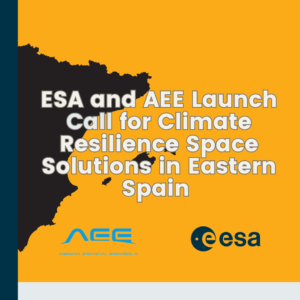The Port of Barcelona Hosts Seabots Demonstration as Part of the WAVESS Project
Barcelona, July 8, 2025 — Today a live demonstration of the SB100 PRO by Seabots took place at the Port of Barcelona as part of the WAVESS project. The initiative is one of four projects selected in the first call of Phi-Lab Spain, a program dedicated to promoting innovative solutions based on space technology for climate resilience.
The event included participation from members of the WAVESS consortium, led by Spascat, with the collaboration of Seabots and the Telecommunications Technological Center of Catalonia (CTTC). Representatives from the Institute of Space Studies of Catalonia (IEEC), as part of the Phi-Lab team, as well as members of the company Open Cosmos and BlueTechPort, also took part in the session.
During the event, the functionalities of the SB100 PRO were presented. This unmanned surface vehicle (USV), developed by the Catalan company Seabots, is designed for environmental data collection missions in complex aquatic environments such as ports, lagoons, or coastal areas.
The demonstrated vehicle features a dual GNSS/RTK antenna system for navigation vector calculation and high-precision positioning; a proprietary Wi-Fi network for remote connection; multiparametric probes to measure physicochemical variables of the aquatic environment, especially related to bathymetry in the context of this project, and a fully electric, zero-emissions, sustainable design. Its modularity allows for sensor adaptation according to the specific needs of each mission.
One of the highlights of the day was the technical discussion held among representatives of all participating organisations. The debate focused on integrating data collected by autonomous vehicles with EO data. The scalability of this hybrid data architecture was also discussed, with the aim of expanding it to other coastal scenarios or areas particularly vulnerable to climate change.
This exchange highlighted the complementary expertise within the consortium, strengthening the value of the WAVESS project. This synergy enables improved precision and coverage of environmental monitoring, a key element in addressing the effects of climate change on coastal ecosystems.
The practical session concluded with a real-time display of the data transmitted by the Seabot, showing coordinates, measurements from the associated probe, speed, and other field parameters. The WAVESS project exemplifies the collaboration between technological and scientific entities to develop innovative tools that contribute to better coastal zone management.
The WAVESS project exemplifies the collaboration between technological and scientific entities to develop innovative tools that contribute to better coastal zone management.


